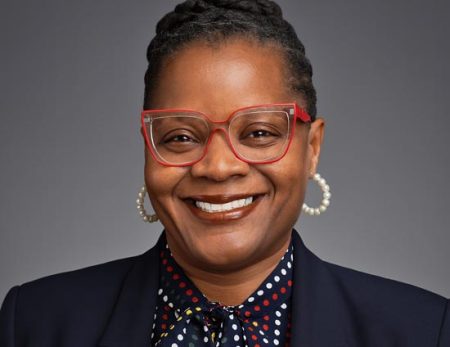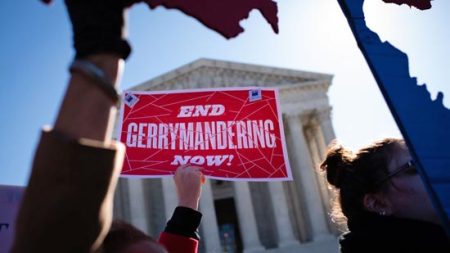Caught Up in the System
 The fate of the black man records the social injustice woven through American history. Along with American Indians, black men have suffered disproportionately in their access to education, housing, employment, health care, and other social needs. But perhaps in no other area has injustice been displayed more prominently than in the U.S. “criminal justice” system.
The fate of the black man records the social injustice woven through American history. Along with American Indians, black men have suffered disproportionately in their access to education, housing, employment, health care, and other social needs. But perhaps in no other area has injustice been displayed more prominently than in the U.S. “criminal justice” system.
The dramatic rates at which African American males come under judicial supervision not only impacts victims and offenders but has also created a generation of defeated young black men, affected families, and profoundly broken communities. In an era when civil rights legislation has offered minorities new opportunities for advancement, the discouraging numbers of black men caught in a revolving-door jail system refute the legislated notion of equality in the United States.
As more and more African American men are incarcerated, it is past time
to examine the laws, national mentality, and community impact that
these Draconian measures have created.
A History of Incarceration
Large numbers of black men began entering the American penal system
shortly after emancipation. Prior to that, slave owners administered
private “justice,” and the public system applied only to the relatively
few “free people of color.” From the period of Reformation to 1954,
when Brown v. Board of Education desegregated American schools, African
Americans made up about 30% of jail inmates, while comprising only 13%
of the overall population. Over the next fifty years, especially since
1980, the proportion of
African American men rose to an unprecedented
50% of all prisoners. Statistics show that:
• 32% of black males in their twenties are under court-ordered supervision, either in jail or on probation or parole.
• A black male born in 1991 has a 30% chance of spending time in
prison at some point in his life. The figure for Hispanics is 16%, for
white males, 4%.
• The United States leads the world in the number of people
imprisoned, more than twice the numbers in the next closest countries,
South Africa and Russia. According to the www.Prisonsucks.com website,
as of June 1, 2009, there were 2,375,965 people in US jails and
prisons. Well over a million of these are black men.
Other minorities have also been disproportionately affected. The number
of Hispanic inmates has doubled since 1990, and the number of women,
especially women of color, has risen by a dramatic 418%. Black women
are now incarcerated at seven times the rate of white women. But it is
the black male who has suffered the worst indignities and hopelessness.
Our justice system appears determined to maintain a permanently
disenfranchised African American population: for every three black men
in college, four now sit in jail.
Race and Class and the Justice System
Race and class distinctions operate at every level of the justice
system, ranging from police randomly stopping black males in cars,
commonly known as “Driving While Black,” to judges dealing out harsher
sentences for blacks than for whites convicted of the same crime.
Many unjust practices allowed in the past, from sanctioned programs
such as the convict leasing system to extra-judicial lynchings and
countless cases of police brutality, have shaped the history of African
Americans and their relationship to the criminal justice system. But
despite Civil Rights laws and other judicial and legal changes, racial
disproportions in the justice system have actually worsened during the
past thirty years.
Research on sentencing by the courts shows overwhelming evidence of
disparity based on race and class. An African American convicted of
killing a white person faces a 4.3 times greater chance of receiving
the death penalty than a white person convicted of killing a black
person. For the same crimes, minorities receive jail terms at twice the
rate of white offenders, resulting in a half million additional
sentences for minorities each year. Prosecutors and judges regularly
abuse their discretion about, for example, whether a first-time
offender will be given six months in jail or be required to enter a
substance abuse program.
Once a part of the penal system, it is hard for young black men to
avoid repeat offenses and subsequent re-incarceration. Unable to find
work in a limited economy, stereotyped and tabooed by society, a young
ex-con will find it nearly impossible to keep up with the demands of a
life determined by poverty and parole obligations. Statistics show that
70% to 90% of current prisoners will be unemployed when released; more
than half of them will return to jail. As Marc Mauer of The Sentencing
Project points out, “An observer of any urban courthouse will witness a
sea of black and brown faces sitting at the defense table or shackled
together awaiting the bus transporting prisoners from court hearings
back to jail.”
Drug Policy and Racism
Since 1980, the “war on drugs” has been the biggest factor in the rise
of prison populations in the United States. In the first fifteen years
after Ronald Reagan’s drug policies were adopted, drug arrests tripled,
bringing an astounding one million additional non-violent drug cases to
the court system each year. Over time, increasingly severe mandatory
sentences have reflected a supposed national appetite to “get tough on
crime.” While this approach has always brought politicians votes, the
cost to taxpayers is enormous, and the explosion of non-violent
criminals into the penal system has had a devastating effect on
communities, permanently disrupting the lives of families and
low-income communities.
Racial disparities are obvious in statistics: more than 60% of all
people languishing in American prisons are serving time for drug
possession, and Hispanics and African Americans as twice as likely to
be convicted of drug offenses than whites.
The racial component has been most glaringly apparent in the
differences in how crack and powder cocaine are treated, as legislated
by Congress in 1988. It takes 500 grams of powder cocaine to get a
mandatory five-year sentence, but only 5 grams of crack to draw the
same penalty. As 86% of persons charged with crack cocaine are African
Americans, it becomes clear that people of color have been targeted to
receive greater penalties for their mistakes. Lawmakers are now
attempting to close this gap, but with over a million black men in
jail, it may be too late to stop the consequences of jailing an entire
generation of men.
While evidence has positively proved that treatment interventions for
substance abuse are far more effective than incarceration, the justice
system has opted for much harsher practices. The Rand Corporation has
estimated that investing an additional $1 million dollars a year in
drug treatment programs would reduce serious crime by fifteen times
more than expanding the use of mandatory sentencing.
Yet both Republican and Democratic administrations since Reagan have
emphasized the back-end responses of law enforcement and incarceration
over the front-end approaches of prevention and treatment, continuing
to give over two-thirds of the federal allocation for anti-drug
spending to law enforcement rather than rehabilitation. Thus lawmakers
continue to widen the racial disparities inside the criminal justice
system without acknowledging the failed system’s consequences on the
fabric of society, especially to minority communities and people of
color.
Prisons For Profit
The dirty secret hidden from most Americans is the contemporary push,
begun under Reagan’s “free market” policies and later blossoming under
the Clinton administration, to privatize the U.S. prison system.
Profiting from the mantra that “the private sector can do it better and
cheaper,” corporations have slowly but effectively taken control of the
government’s role as jailer of its people.
When mandatory drug laws vastly increased the number of prisoners, more
prisons were needed, usually at exorbitant costs, and many states
turned the incarceration “business” over to private, for-profit
corporations. Businessmen saw a golden opportunity: not only could they
profit from lucrative government contracts to house inmates, but they
could earn massive incomes by renting them out as cheap labor.
The prison-industry-complex is now one of the fastest-growing
industries in the United States, a multi-billion dollar enterprise with
trade conventions, websites, mail-order and Internet catalogs, and
direct advertising campaigns; architectural and construction companies,
plumbing, food service, and armed security components; and, of course,
Washington lobbyists and big-time Wall Street financing. This is big
business at its worst, feeding on the prey of racism.
The privatization of prisons raises disturbing ethical questions. If a
corporation is paid according to the number of prisoners it houses, its
profit motive demands that it minimize expenses (such as for food,
medical treatment, etc.), restrict prisoners’ rights, discourage
rehabilitation, manipulate public fear of crime, and, ultimately,
encourage courts to imprison more people for longer periods of time.
The more prisoners, the longer the sentence, the greater the profit.
Legal Slavery
In the U.S. it is legal to rent out workers from prison, adding to the
corporate profits generated by exploiting inmates. There are a number
of big-box companies that pay prisoners between $.50 cents and $2.00 an
hour. As a continuous stream of African Americans continue to be
arrested each day and current immigration policies send whole Latino
families off to jail, more and more companies are turning to hiring
prison labor. As one company executive stated off the record: “It’s a
no-brainer. We pay below minimum wage, pay no health benefits or
overtime, there’s no vacation time, no absenteeism. It’s win-win for
us.”
Meanwhile, the United States prohibits importing prison-made products
from other countries but ships our own prison-made products around the
world. Despite this hypocrisy and a questionably immoral practice that
critics label “legalized slavery,” Congressmen from both parties still
sponsor private prisons as guaranteed money-makers for their districts.
• In 2007, Correctional Corporation of America (CCA) according to
Associated Press reports, and a Forbes Blog, spent more than $2.5
million lobbying the federal government for more contracts to build
more jails.
• In 2008, a Democratic Congress approved an expanded budget for additional private prisons to be built.
• In 2009, two judges in Pennsylvania plead guilty to receiving
kickbacks from a private prison corporation for sentencing scores of
children to its juvenile detention centers. (The private detention
center has not been charged.)
A recent study by the Progressive Labor Party concludes: “The private
contracting of prisoners for work fosters incentives to lock people up.
Private prisons now depend on this income. Corporate stockholders who
make money from prison labor lobby for longer sentences, in order to
expand their workforce and profits. The system feeds itself…”
Impact on Community
The consequences for the families and communities affected by the mass
incarceration of its African American male population are overwhelming
and unjust. Young boys with fathers in jail develop a hopelessness to
life’s opportunities and feel condemned to a life of crime. Young
mothers struggle to keep their children safe. Fewer African American
men are available for marriage and fatherhood roles. Many former felons
never regain their right to vote, or retain meaningful employment.
It is imperative that this ugly chapter of American history end
immediately. A generation is at stake. Our legislative leaders must
recognize the system’s blatant injustices and rework the entire penal
system outside the jaws of capitalism. The over-representation of black
males in the justice system is a sign that something, everything, is
not working. Drug laws must be rewritten, mandatory sentencing
abandoned. Rehabilitation and drug treatment programs need to be set as
a priority. Skills and jobs must be provided to take the place of petty
crime.
But most importantly, the people of this frightened country need to wake up and understand: our brothers need our help.








